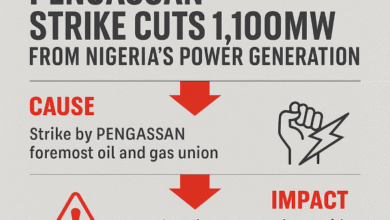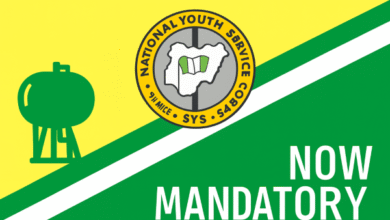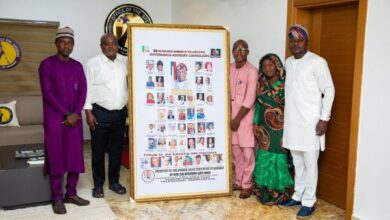NDIC- CBN Approves Liquidisation of 83 Microfinance Bank
By Precious Adi
Alhaji Umaru Ibrahim, the Managing Director, Nigerian Deposit Insurance Corporation, on Tuesday said that the Central Bank of Nigeria had approved the liquidation of 83 licensed microfinance banks.
Umaru said it was discovered that some of the microfinance banks “existed only on paper, while some are used to defraud Nigerians.”
He also said that there were about 900 microfinance banks operating in the country, out of which 83 of had been listed for liquidation, and explained that the NDIC is working towards determining the number of depositors and how much each had in the microfinance institution in other to pay them.
 He said “Some assets of the banks will also be sold. There is no doubt that the operations of some of the microfinance banks have become epileptic.”
He said “Some assets of the banks will also be sold. There is no doubt that the operations of some of the microfinance banks have become epileptic.”
He added that N105bn was provided in the 2014 budget proposals to pay off depositors of liquidated banks.
“Funding gap is what we do to prepare for the rainy day. We hope and pray that the rainy day does not come, but any insurance company should prepare for the rainy day. As we speak, no bank benefited from the fund in 2013,” he said.
He said that the NDIC has rebranded its operations to ensure better service delivery, adding that after operating for 20 years, the corporation decided that it was time to rebrand for total reorientation.
Ibrahim also spoke about plans to regulate mobile banking in the country in order to avoid any form of fraudulent practice by operators, either in the banking or telecommunications sector.
He said, “In 2013, we maintained confidence and stability of the banking system through a continuous and effective supervision and regulation of the system. We have also tried to pay depositors of institutions that had been liquidated.
“We have stepped up awareness and campaigns about our activities to make sure that members of the public put up claims of their locked up deposits in liquidated financial institutions. We appointed some banks as agents with the assistance of our various zonal offices that we established in various parts of the country.”











